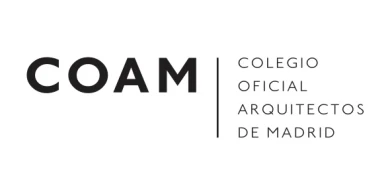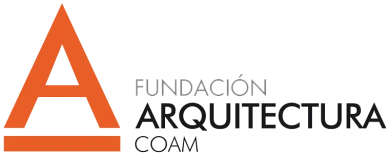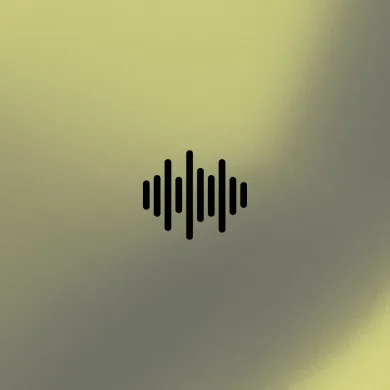-
Anthony Vidler. Towards Superarchitettura
In collaboration with Aldo van Eyck and later with lyricists and situationists, Constant worked for a number years imagining architecture and urbanism that would respond to the physical and functional needs of the environment, based on the gypsy camps and migrant communities in post-industrial society. New Babylon remains an intense humanist experiment between a broad group of visionary projects by artists and architects involved in the revolt against alienating and monotonous environments in post-war reconstruction. Some these projects were utopian, for instance Nicolas Schöffer’s Cybernetic City, Mobile Architecture by Yona Friedman, the Mobile City by Iannis Xenakis and Archigram’s Plug-in City; while others were dystopian, such as Archizoom’s No-Stop City, or the Continuous Monument by Superstudio. Some, however, were part of the call by critic Reyner Banham to “invent ‘other’ architecture”. Today we can see the impact of these visions on divergent architects like Rem Koolhaas, Bernard Tschumi and Leon Krier, yet no contemporary architect has opened up a space quite like Constant’s.
-
José Miguel de Prada Poole, José Pérez de Lama, Izaskun Chinchilla and Ethel Baraona. Another City for Another Life
New Babylon responded to the pressing need to find urgent answers to mass and global urban growth, in addition to tackling the logic of alignment and privatisation in the contemporary city. This round-table discussion, which takes its title from a text by Constant, brings together four architects that have addressed these challenges in different ways: José Miguel de Prada Poole, through the city that instantly took shape in the ephemeral mega-structures of leisure in the 1968 environment; José Pérez de Lama, with the overflow of architecture into the convergence of digital technology, new social movements and urban territory; and Izaskun Chinchilla’s concept of organic prototypes and mechanisms conceived through play and participation. The table will be moderated by editor and critic Ethel Baraona.
![Constant. New Babylon Nord [Nueva Babilonia norte], (detalle). Plano, 1958 © Constant, VEGAP, Madrid, 2016](https://recursos.museoreinasofia.es/styles/large_landscape/public/Actividades/babylon.jpg.webp)
Held on 17 Feb 2016
New Babylon (1956–1974) is a networked city project conceived by the Dutch artist and architect Constant Nieuwenhuys for the “total fulfilment of life”, an approach to urbanism based on the freedom of the individual through the power of play and creativity. This activity, which marks the end of the retrospective in the Museo devoted to Constant, examines this total artwork’s place in the utopian urbanism that followed World War Two through a lecture by Anthony Vidler and a round-table discussion featuring participation from José Miguel de Prada Poole, Izaskun Chinchilla, José Pérez de Lama and Ethel Baraona.
In the lapse of almost half a century since this last great utopia of European art – outlined by Constant in maquettes, photomontages, planimeters and films - numerous questions still arise, and aim to be addressed in this activity: Where is Constant’s place in the post-war urbanism related to contemporary proposals such as those from the Independent Group, Yona Friedman and Le Corbusier, among others? What is the flipside today, and how can it keep up its ability to break ground in an age when technological networks are paradoxically inseparable from the more sophisticated forms of control and nomadism is associated with uncertainty as a class condition?
In collaboration with
The Netherlands Embassy, COAM and Fundación COAM
Organised by
Museo Reina Sofía
In collaboration with



Participants
Ethel Baraona. Editor, critic and curator. Together with César Reyes, she is the co-founder of dpr-barcelona, a research studio and independent publishers, and editor of Quaderns d’arquitectura i urbanisme.
Izaskun Chinchilla. Architect. Since 2001 she has directed her own studio, Izaskun Chinchilla Arquitectos, and her work has received awards at various international conferences and competitions. In 2014 she won the competition City of Dreams for her pavilion design in Governors Island (New York), which used recycled material and was built collectively. She is also a professor and researcher at Bartlett School (University College London).
José Pérez de Lama. Architect and professor at the Higher Technical School of Architecture at the University of Seville. Between 2001 and 2011 he was part of the group hackitectura.net (together with Sergio Moreno and Pablo de Soto). He has published and edited Devenires ciborg. Arquitectura, Urbanismo y Redes de Comunicación (2006), WikiPlaza. Request For Comments (2011) and Yes We Are Open! Fabricación digital, tecnologías y cultura libres (2014).
José Miguel de Prada Poole. Architect and professor of Architectural Design, Industrial Design for Housing and Emergency Architecture at ETSAM (the Polytechnic University of Madrid). In 1975 he won the National Architecture award, and was also a researcher at the Center for Advanced Visual Studies and visiting professor at the MIT in Cambridge (Massachusetts, USA) between 1980 and 1982. In 1968 he devised the Ciudad instantánea (Instant City) in Ibiza and in 1972 the space for the Pamplona Encounters.
Anthony Vidler. Architectural historian and theorist. He is dean and professor at the Irwin S. Chanin School of Architecture (2002–2012), and visiting professor at Yale and Princeton Universities, among numerous others. His publications include Histories of the Immediate Present: Inventing Architectural Modernism (2011), Architecture between Spectacle and Use (2008), Warped Space: Art, Architecture, and Anxiety in Modern Culture (2000), The Architectural Uncanny: Essays in the Modern Unhomely (1992) and The Writing of the Walls. Architectural Theory in the Late Enlightenment (Princeton: Princeton Architectural Press, 1987).
Más actividades

Aesthetics of Peace and Desertion Tactics
8 October 2025 – 24 June 2026
The study group Aesthetics of Peace and Tactics of Desertion: Prefiguring New Pacifisms and Forms of Transitional Justice proposes a rethinking—through both a theoretical-critical and historical-artistic lens—of the intricate network of concepts and practices operating under the notion of pacifism. A term not without contestation and critical tension, pacifism gathers under its name a multiplicity of practices—from anti-militarism and anti-war movements to non-violence activism—while simultaneously opening urgent debates around violence, justice, reparation, and desertion. Here, pacifism is not conceived as a moral doctrine, but as an active form of ethical and political resistance capable of generating aesthetic languages and new positions of social imagination.
Through collective study, the group seeks to update critical debates surrounding the use of violence and non-violence, as well as to explore the conflict of their representation at the core of visual cultures. In a present marked by rearmament, war, genocide, and the collapse of the social contract, this group aims to equip itself with tools to, on one hand, map genealogies and aesthetics of peace—within and beyond the Spanish context—and, on the other, analyze strategies of pacification that have served to neutralize the critical power of peace struggles. Transitional and anti-punitive justice proposals will also be addressed, alongside their intersections with artistic, visual, and cinematic practices. This includes examining historical examples of tribunals and paralegal activisms initiated by artists, and projects where gestures, imaginaries, and vocabularies tied to justice, reparation, memory, and mourning are developed.
It is also crucial to note that the study programme is grounded in ongoing reflection around tactics and concepts drawn, among others, from contemporary and radical Black thought—such as flight, exodus, abolitionism, desertion, and refusal. In other words, strategies and ideas that articulate ways of withdrawing from the mandates of institutions or violent paradigms that must be abandoned or dismantled. From feminist, internationalist, and decolonial perspectives, these concepts have nourished cultural coalitions and positions whose recovery today is urgent in order to prefigure a new pacifism: generative, transformative, and radical.
Aesthetics of Peace and Tactics of Desertion, developed and led by the Museo Reina Sofía’s Studies Management, unfolds through biweekly sessions from October to June. These sessions alternate between theoretical discussions, screenings, work with artworks and archival materials from the Museo’s Collection, reading workshops, and public sessions. The group is structured around sustained methodologies of study, close reading, and collective discussion of thinkers such as Judith Butler, Elsa Dorlin, Juan Albarrán, Rita Segato, Sven Lütticken, Ruth Wilson Gilmore, and Franco “Bifo” Berardi; historical episodes such as the anti-nuclear and anti-arms race movement in Spain; and the work of artists and activists including Rojava Film Commune, Manuel Correa and the Oficina de Investigación Documental (Office for Documentary Investigation), and Jonas Staal, among other initial cases that will expand as the group progresses.

Institutional Decentralisation
Thursday, 21 May 2026 – 5:30pm
This series is organised by equipoMotor, a group of teenagers, young people and older people who have participated in the Museo Reina Sofía’s previous community education projects, and is structured around four themed blocks that pivot on the monstrous.
This fourth and final session centres on films that take the museum away from its axis and make it gaze from the edges. Pieces that work with that which is normally left out: peripheral territories, unpolished aesthetics, clumsy gestures full of intent. Instead of possessing an institutional lustre, here they are rough, precarious and strange in appearance, legitimate forms of making and showing culture. The idea is to think about what happens when central authority is displaced, when the ugly and the uncomfortable are not hidden, when they are recognised as part of the commons. Film that does not seek to be to one’s liking, but to open space and allow other ways of seeing and inhabiting the museum to enter stage.

Intergenerationality
Thursday, 9 April 2026 – 5:30pm
This series is organised by equipoMotor, a group of teenagers, young people and older people who have participated in the Museo Reina Sofía’s previous community education projects, and is structured around four themed blocks that pivot on the monstrous.
The third session gazes at film as a place from which to dismantle the idea of one sole history and one sole time. From a decolonial and queer perspective, it explores films which break the straight line of past-present-future, which mix memories, slow progress and leave space for rhythms which customarily make no room for official accounts. Here the images open cracks through which bodies, voices and affects appear, disrupting archive and questioning who narrates, and from where and for whom. The proposal is at once simple and ambitious: use film to imagine other modes of remembering, belonging and projecting futures we have not yet been able to live.

Remedios Zafra
Thursday March 19, 2026 - 19:00 h
The José Luis Brea Chair, dedicated to reflecting on the image and the epistemology of visuality in contemporary culture, opens its program with an inaugural lecture by essayist and thinker Remedios Zafra.
“That the contemporary antifeminist upsurge is constructed as an anti-intellectual drive is no coincidence; the two feed into one another. To advance a reactionary discourse that defends inequality, it is necessary to challenge gender studies and gender-equality policies, but also to devalue the very foundations of knowledge in which these have been most intensely developed over recent decades—while also undermining their institutional support: universities, art and research centers, and academic culture.
Feminism has been deeply linked to the affirmation of the most committed humanist thought. Periods of enlightenment and moments of transition toward more just social forms—sustained by education—have been when feminist demands have emerged most strongly. Awareness and achievements in equality increase when education plays a leading social role; thus, devaluing intellectual work also contributes to harming feminism, and vice versa, insofar as the bond between knowledge and feminism is not only conceptual and historical, but also intimate and political.
Today, antifeminism is used globally as the symbolic adhesive of far-right movements, in parallel with the devaluation of forms of knowledge emerging from the university and from science—mistreated by hoaxes and disinformation on social networks and through the spectacularization of life mediated by screens. These are consequences bound up with the primacy of a scopic value that for some time has been denigrating thought and positioning what is most seen as what is most valuable within the normalized mediation of technology. This inertia coexists with techno-libertarian proclamations that reactivate a patriarchy that uses the resentment of many men as a seductive and cohesive force to preserve and inflame privileges in the new world as techno-scenario.
This lecture will address this epochal context, delving into the synchronicity of these upsurges through an additional parallel between forms of patriarchal domination and techno-labor domination. A parallel in which feminism and intellectual work are both being harmed, while also sending signals that in both lie emancipatory responses to today’s reactionary turns and the neutralization of critique. This consonance would also speak to how the perverse patriarchal basis that turns women into sustainers of their own subordination finds its equivalent in the encouraged self-exploitation of cultural workers; in the legitimation of affective capital and symbolic capital as sufficient forms of payment; in the blurring of boundaries between life and work and in domestic isolation; or in the pressure to please and comply as an extended patriarchal form—today linked to the feigned enthusiasm of precarious workers, but also to technological adulation. In response to possible resistance and intellectual action, patriarchy has associated feminists with a future foretold as unhappy for them, equating “thought and consciousness” with unhappiness—where these have in fact been (and continue to be) levers of autonomy and emancipation.”
— Remedios Zafra

27th Contemporary Art Conservation Conference
Wednesday, 4, and Thursday, 5 March 2026
The 27th Contemporary Art Conservation Conference, organised by the Museo Reina Sofía’s Department of Conservation and Restoration, with the sponsorship of the Mapfre Foundation, is held on 4 and 5 March 2026. This international encounter sets out to share and debate experience and research, open new channels of study and reflect on conservation and the professional practice of restorers.
This edition will be held with in-person and online attendance formats, occurring simultaneously, via twenty-minute interventions followed by a five-minute Q&A.

